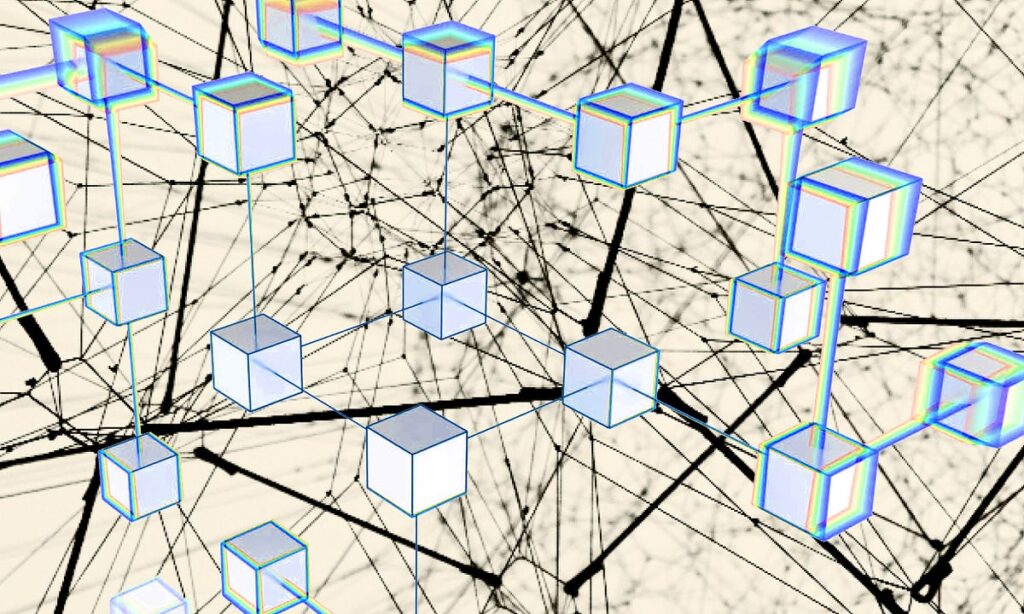by Raphael Pohland
From database to thought construction, from know-how to imaginative and prescient: how blockchain and synthetic intelligence collectively may create one thing greater than each — and why we’ve to be taught to stay with this “different”.
Two applied sciences are at the moment writing the grammar of the long run: synthetic intelligence (AI), which learns, interprets and decides, and blockchain, which preserves, verifies and decentralizes. What occurs when these two techniques not solely complement one another, however enter into a real symbiosis? The reply may very well be nothing lower than a brand new type of intelligence — not programmed, however grown, not centrally managed, however emergent.
Emergence
Emergence is a time period from biology. It describes the phenomenon that one thing new emerges from the interplay of many easy parts that can’t be traced again to its particular person components. A fish will not be a faculty, a neuron will not be a consciousness. And but, within the sum, by resonance and suggestions, a residing entire can emerge from components. When many small components end in one thing huge that none of them carry inside themselves alone, that is referred to as emergence. The entire grows past itself. That is precisely what we may very well be dealing with within the digital sphere: AI as a neuronal pulse generator, blockchain as a mobile reminiscence. Their cooperation may mark the start of an emergent, techno-social intelligence that we are going to neither totally management nor totally perceive.
Mechanical contract coordination
However the connection goes additional. In a machine economic system by which automobiles, drones, robots and sensors conclude contracts with one another, course of funds and share sources, AI is merging with blockchain to create an autonomous financial area. Right here, folks not act on behalf of machines, however machines act on behalf of their very own calculations. An electrical car negotiates with the charging station about worth and time, an agricultural robotic coordinates with others about fields, logistics drones manage international provide chains in actual time. All of this occurs with out central management, it occurs as a result of every unit is aware of what it will probably do and trusts what the others are doing.
This sort of machine-based coordination will not be a dream of the long run, it is step one in direction of a brand new actuality. Unimagined prospects are additionally opening up in information processing itself: As a substitute of centrally educated AI fashions, the place energy and information are concentrated in a number of companies, decentralized studying techniques will be organized through blockchain. Tens of millions of gadgets around the globe may work concurrently on a shared AI mannequin with out revealing their non-public information. The blockchain ensures that contributions are recorded pretty, fashions are modified in a traceable method and rewards are distributed transparently. The consequence could be a brand new type of collective intelligence that’s open, distributable and resilient.
The query of id can also be being renegotiated: Blockchain-based id fashions make it doable to selectively launch private information. Mixed with personalised AI, this opens up areas by which customers can resolve for themselves what data they share and with which techniques. The result’s a digital counterpart that learns, adapts, accompanies — and all the time ensures the safety of private information. It’s no exaggeration to talk of a digital twin or a “soul within the machine” that’s continuously evolving in its interplay with us. These are nonetheless thoughts video games that aren’t (but) technically possible.
Nevertheless, all these developments are additionally resulting in the edge of a brand new political and moral order. If selections are more and more made by techniques which can be fashioned emergently from thousands and thousands of inputs, the query arises: Who’s liable? Who controls? Who nonetheless understands what is occurring? Maybe the central drawback is not the abuse of energy, however a scarcity of transparency on account of complexity. Maybe we not want supervision, however new types of resonance ethics, collective design and technological co-responsibility.
This might even change our thought of democracy. In a system that processes information in actual time, measures collective moods and generates proposals algorithmically, governance processes may develop into extra dynamic, extra adaptive, but additionally extra sinister. AI-supported decision-making processes, secured by blockchain transparency, would not be the results of majorities, however of patterns, actions and correlations. Politics could be a swarm. Maybe selections could be extra understandable and fairer than they’re immediately, however maybe they’d be de-emotionalized, colder and extra technocratic.
All of this may increasingly sound utopian or dystopian. However above all, it’s concretely conceivable. As a result of AI and blockchain are usually not simply instruments. They’re infrastructural ideas that mutually reinforce one another and, when mixed, create the potential for a brand new digital organism — an clever society by which machines not solely serve, but additionally assist to form.
Maybe it’s nonetheless a good distance off. Maybe it already exists in its first fragments. However one factor appears sure: one thing is starting to stir between strains of code and neural networks, not but a complicated grammar that kinds sentences, however the first glyphs. The primary twitches of a machine-based coordination language. No consciousness but, however maybe the early splinters of letters of a coming clever society.
